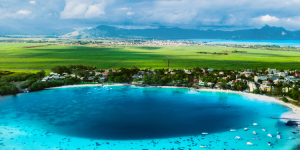
After more than two years, Covid-19 seems to have become part of our everyday life. Canada has just encountered its 6th wave, and the situation doesn't seem to be improving. Meanwhile, the United Kingdom and France still have high contamination rates. After Israel, many countries have introduced the 4th dose, the 2nd booster dose, for some categories of people.
Which countries have adopted the 2nd booster dose?
Israel has been ahead of other countries since the beginning of vaccination against Covid-19. It was also the first country to authorise the 4th dose for people over 18. But the World Health Organization (WHO) has doubts. On January 3, Israel introduced the 4th dose for people aged 60 and over. Faced with a new Covid wave in February, Chile followed suit with the 4th dose for people over 55, provided they received their 3rd dose more than six months ago. Before February, only health professionals, the elderly living in retirement homes, frail and immunocompromised people had access to this 2nd booster dose. To launch this new vaccination campaign in February, President Piñera (72) set the example by getting his 4th jab done in front of the cameras. He believes that anticipation is the best strategy against Covid-19. It's worth noting that 91.1% of the population in Chile is fully vaccinated (2 doses). Besides, 86.9% of Chileans have already received their booster (3rd) dose. In the United States, President Biden (79) also set the pace on March 30 by getting his 2nd booster dose. In fact, the US has just opened the 4th dose campaign to people aged 50 and over, provided they received their 3rd dose at least 3 months ago.
Meanwhile, other countries such as Denmark, Australia, Brazil, New Zealand and Spain recommend the 4th dose against Covid for the most vulnerable, including the immunocompromised, cancer patients, patients with arthritis, transplant recipients, dialysis patients, etc. The Spanish authorities made it clear that the 2nd booster dose must take place 5 months after the first booster dose. Sweden shortened the waiting period between the 3rd and 4th doses, but the age limit has been increased: those aged 80 and over can receive their 4th dose one month after the 3rd dose. The same applies to fragile people, whether they live in their own house or in a retirement home. In France, the 2nd booster dose is available for people aged 80 and over since March 14. On April 7, the Minister of Health announced an upcoming extension to those over 60 who had received their booster dose at least 6 months previously.
In Canada, people aged 60 and over can get their 2nd booster dose done since April 6. In addition, some provinces, such as New Brunswick, are providing the 2nd booster dose for people aged 50 and above, along with Paxlovid anti-covid pills, which reduce the risk of hospitalisation and death. Canada has just entered its 6th wave with 63,808 positive Covid cases on Thursday last, for an average of nearly 30,000 new cases the previous week. Just one week before, 6,000 cases were reported.
No obligation
For now, the German scientific committee has recommended the anti-Covid vaccine for healthcare workers, the most vulnerable groups, and people aged over 70. Still, 6 months is required between the two injections for caregivers and 3 for other individuals. However, the 4th dose isn't mandatory until now. The proposed bill on vaccination obligation was rejected on April 7, with 296 votes in favour, 378 votes against and 9 abstentions. The German government had been considering making vaccination compulsory since last December, following Austria's example. However, vaccination is no longer mandatory in Austria, where things have improved lately.
Like Germany, many countries have chosen not to make the 2nd booster dose compulsory. Instead, they are promoting sensitisation campaigns while avoiding further tensions. Hungary is one of the few countries where there is no age requirement for the 2nd booster dose. Since January 13, anyone can access it upon a doctor's recommendation.
WHO's doubts on the 4th dose
The world population is worried as to whether the 2nd booster dose could become mandatory. But the WHO believes that widespread vaccination would have counterproductive effects. Travelling to Geneva on December 22, 2021, WHO Director-General Tedros Adhanom Ghebreyesus already warned during a press briefing that "No country will be able to get out of the pandemic with a booster dose". He added that: "Booster dose programs without proper planning are more likely to extend the pandemic rather than end it, especially in countries with high vaccination rates, thus giving the virus more opportunities to spread and mutate".
WHO encourages reasonable and widespread vaccination for the entire world population to reduce the risks of developing new variants. Besides vaccination, respect for barrier gestures remains the best way to fight Covid. The WHO has emitted substantial reserves regarding the lifting of restrictions in Europe. Japan, for its part, isn't ready to put an end to barrier measures faced with the rising number of cases. Doctors believe that dropping the mask is responsible for the new contamination peak in Canada. Dr Moore, Ontario's Chief Medical Officer of Health, is already advocating for a return to the mandatory wearing of masks. As WHO warnings seem to be confirmed, the real question is whether populations that have not yet been vaccinated will be ready to change their position and if everyone agrees to the reintroduction of barrier gestures.



















